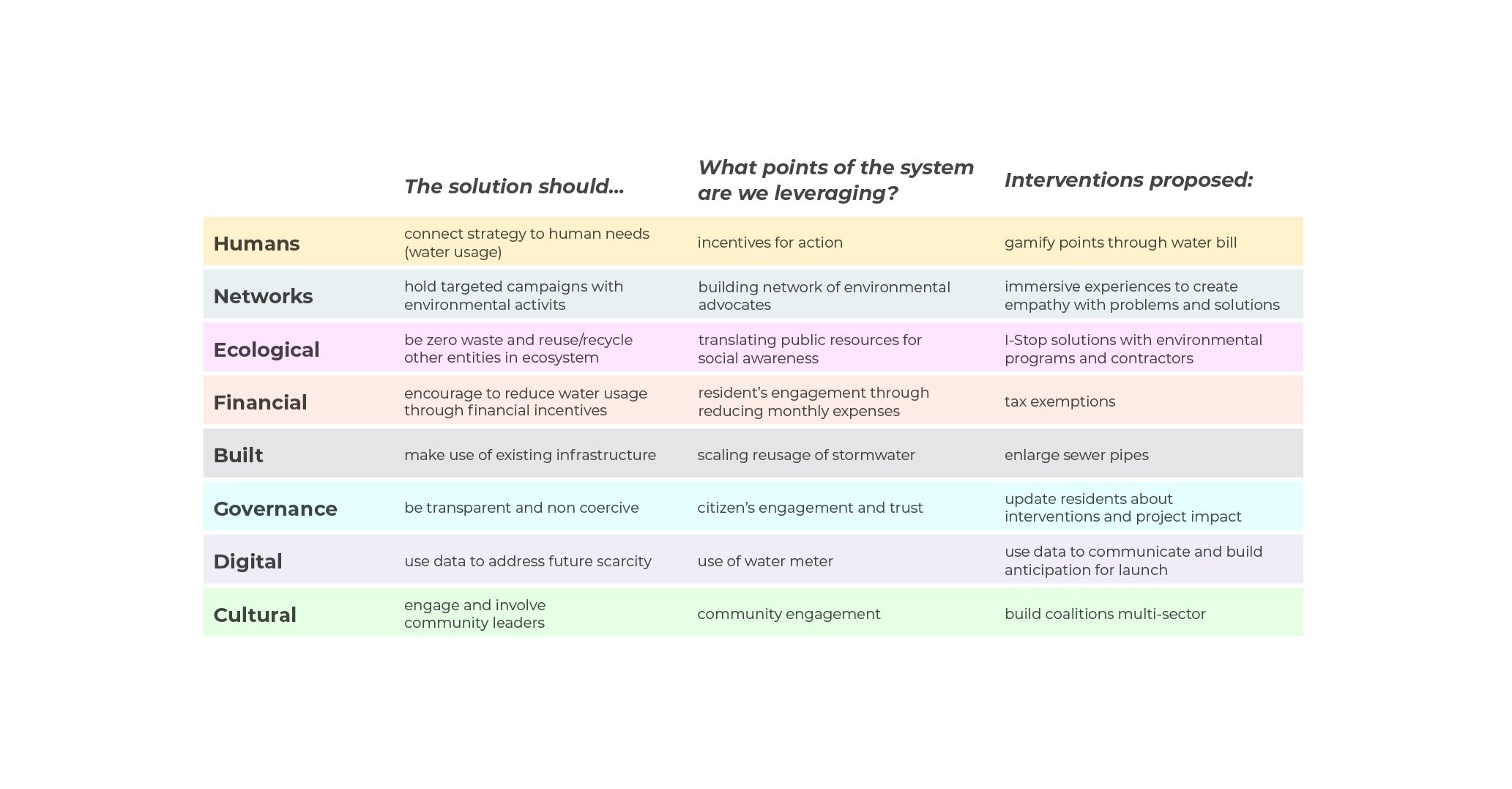
design research, strategy, modeling complexity, facilitation, visual design
Engaging citizens in stormwater management
Jersey City Mayor’s Office + Bloomberg Philanthropies + Institute of Design
Challenge
How might we accelerate the transition towards a sustainable stormwater management system in Jersey City?
Briefing
The Stormwater Management project at Jersey City aims to reduce flooding and build public awareness for the stormwater issue. Currently, the City is trying to reach their goals by engaging the public through marketing campaigns (flyers, posters, website, etc) of green infrastructure (GI) benefits. The sustainability office at the City Hall pushed other efforts such as building GI demos at their site and fostered partnership with developers through tax incentives for built GI. However, most of their initiatives did not scale up the impact envisioned. In Fall 2018, the Institute of Design partnered up with Bloomberg Philanthropies’ Innovation Teams program to analyze and develop strategies that can solve a current complex urban challenge. Jersey City was one of the 12 U.S. cities selected in 2014 to participate in the program. Our goal was to address complexities by generating bold, forward-thinking solutions to improve local lives and well-being of communities, which was delivered through a final report.
Project timeline:
Research
Our research began with desk research of current efforts made by the City of Jersey City as well as best practices of stormwater management in other cities. Subsequently, the team prepared for the field trip in Jersey City, where meetings with various stakeholders within the Mayor's Office were held.
Workshop Facilitation to understand context
In order to deepen the understanding of the value proposition, activities they are doing to foster change and the levels of impact they are reaching, the team facilitated a workshop with stakeholders.
Building and Understanding Context
During this phase, the team used the framework "Multilevel Design Model: the mutual relationship between product-service system development and societal change processes", created by Peter Joore and Han Brezet. This tool supports the comprehension of the interconnectivity between activities (level 1 - product-technology and level 2 - product-service), the interactions among actants afforded by them (level 3 - socio-technical) and the impacts these interactions generate (level 4 - societal), and the overall alignment between the initiatives and the intended goals.
After our return and investigating stormwater management practices at Jersey City, we synthesized the research and presented our findings to people involved with other iTeams projects. The higher level insight is that the approach should shift from marketing-driven to citizen-driven. This new configuration would be backed by data tracking/transparency, community engagement, fostering a sustainability network ecosystem and targeting initiatives to gain more reach.
Co-creation Workshop for ideation
Based on the team's research findings, a workshop for co-creating solutions was facilitated to flourish ideas for a more holistic and systemic impact regarding stormwater management. The following content showcases an example of framework used for value creation.
Recommendations
Lastly, it was developed two key strategic recommendations which could scale up impact through citizen-driven innovations:
SPECIAL THANKS TO THE WHOLE TEAM
Co-leads: Ananya Garg, Julia Rochlin, Xinrui Xu
IIT Institute of Design Faculty: Denis Weil
Jersey City’s innovation teams: Bloomberg Philanthropies + Jersey City Mayor’s Office + Office of Sustainability - City of Jersey City










